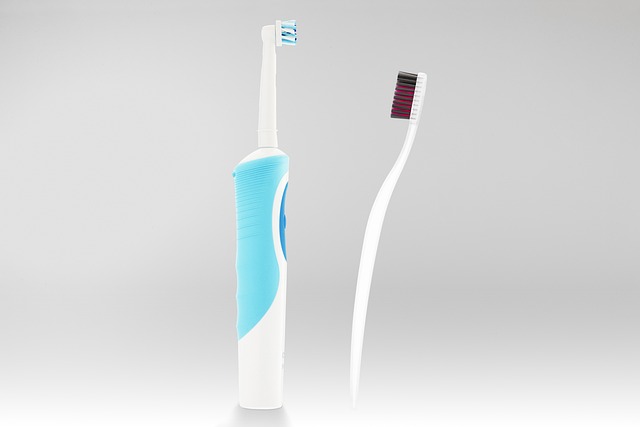Dental clinics face significant risks, including medical malpractice claims, infection control issues, and equipment accidents. Comprehensive insurance for dental offices is crucial to mitigate these risks, protecting against financial losses, reputational damage, property damage, and legal claims. Key coverage areas include general liability insurance, property insurance, and professional liability coverage tailored to the clinic's specialization and needs. Careful evaluation of policy scope, cost, deductibles, and provider reputation ensures adequate protection for the dental practice's financial security and patient trust.
Dental clinics face unique challenges in managing liability and protecting their assets. With increasing legal complexities and patient expectations, understanding the right insurance coverage is vital for dental professionals. This comprehensive guide explores the essential components of insurance for dental offices, including liability, property, and professional coverage. We’ll navigate common risks, discuss various policy options, and provide real-world insights to help dentists make informed decisions and safeguard their practices.
- Understanding Dental Clinic Liability: Common Risks and Exposures
- Types of Property Insurance for Dental Offices: Protecting Your Space and Equipment
- Professional Liability Coverage: Safeguarding Your Practice from Legal Claims
- How to Choose the Right Insurance Policy for Your Dental Clinic
- Key Considerations When Comparing Dental Insurance Providers
- Case Studies: Real-World Examples of Effective Dental Office Insurance
Understanding Dental Clinic Liability: Common Risks and Exposures

Dental clinics, much like any other healthcare facility, face a unique set of risks and potential liabilities due to their specialized nature. Understanding these risks is paramount when it comes to acquiring appropriate insurance for dental offices. One of the primary concerns revolves around patient safety and the prevention of medical malpractice claims. Dental professionals can be held liable for errors in treatment, such as incorrect diagnoses, improper procedures, or failure to obtain informed consent. These issues can lead to patient injuries, resulting in legal repercussions and financial burdens on the clinic.
Moreover, dental offices are at risk of various other exposures. This includes allegations of negligence related to infection control practices, particularly concerning communicable diseases like HIV or hepatitis. Additionally, accidents involving equipment or furniture, as well as slip-and-fall incidents on the premises, can result in personal injuries and legal claims. Insurance for dental offices should cater to these common risks by providing comprehensive liability coverage, ensuring that the clinic is protected against potential financial losses and reputational damage.
Types of Property Insurance for Dental Offices: Protecting Your Space and Equipment

Dental clinics, with their specialized equipment and sensitive patient data, require comprehensive property insurance to safeguard against potential risks. The primary types of property insurance for dental offices include:
1. General Liability Insurance: This covers damages to property or personal injuries caused by your clinic’s activities. It protects against claims related to accidents, slip-and-falls, or medical malpractice.
2. Property Insurance: Specifically designed to protect the physical structure of the clinic and its contents from perils such as fire, theft, vandalism, and natural disasters. This includes coverage for equipment, furniture, and inventory essential for daily operations.
By combining these insurance types, dental offices can create a robust safety net that ensures business continuity and financial protection in case of unforeseen events.
Professional Liability Coverage: Safeguarding Your Practice from Legal Claims

Professional Liability Coverage is an essential component of insurance for dental offices, designed to protect your practice from potential legal claims and financial losses. This type of coverage, often referred to as malpractice insurance, shields dentists and their staff against lawsuits arising from alleged professional negligence. Such incidents could include misdiagnosis, improper treatment, or accidental harm caused during a procedure. By having this protection in place, dental professionals can focus on delivering quality care without the constant fear of legal repercussions.
When selecting an insurance plan for your dental office, ensure that the policy includes comprehensive Professional Liability Coverage that aligns with your practice’s unique needs. This may involve reviewing various policy options, understanding the scope of coverage, and considering potential exclusions or limitations. Investing in robust professional liability insurance is a proactive step towards securing your dental clinic’s future, safeguarding patient trust, and maintaining peace of mind.
How to Choose the Right Insurance Policy for Your Dental Clinic

When selecting an insurance policy for your dental clinic, it’s crucial to consider several factors to ensure comprehensive protection. Start by assessing the specific risks associated with your practice, including potential liability claims from patient injuries or malpractice issues. Different policies cater to various specializations within dentistry, so understanding your clinic’s unique needs is essential. For instance, a pedodontic office may require specialized coverage for treating young patients.
Next, evaluate the financial implications of potential losses. Dental equipment and supplies can be expensive to replace, so ensure your policy includes adequate property coverage. Additionally, consider the cost of legal fees and settlements if a liability claim is filed. Reputable insurance providers offer tailored packages for dental offices, so compare policies to find the best balance between coverage limits, deductibles, and premiums that align with your clinic’s requirements.
Key Considerations When Comparing Dental Insurance Providers

When comparing insurance providers for your dental office, there are several key considerations to keep in mind. First and foremost, understand the scope of coverage offered by each provider. Different insurers have varying policies regarding what constitutes a covered procedure, the level of malpractice protection, and any exclusions or limitations. Ensure that the plan aligns with your clinic’s specific needs, considering the types of procedures you perform most frequently and potential risks associated with your practice.
Another crucial factor is cost and the overall value of the policy. While it’s tempting to opt for the cheapest option, it’s essential to assess the financial protection each insurance provider offers. Compare premiums, deductibles, co-pay amounts, and any additional fees. Additionally, consider the reputation and customer service of the insurance company. A reliable provider with a proven track record of prompt claims processing and effective customer support can make all the difference in managing potential risks and ensuring your dental office’s financial security.
Case Studies: Real-World Examples of Effective Dental Office Insurance

In the dynamic landscape of healthcare, dental clinics face unique challenges and risks that demand comprehensive insurance coverage. Case studies from real-world scenarios highlight the pivotal role of adequate insurance for dental offices. For instance, consider a bustling dental practice where an accidental slip and fall occurred, leading to a patient sustaining injuries. Effective insurance coverage, including general liability insurance, would step in to protect the clinic financially, covering medical expenses and potential legal settlements.
Another scenario involves a dental office experiencing a burst pipe, causing extensive water damage to its premises and equipment. Property insurance for dental offices, including coverage for physical assets and business interruption, would aid in the swift restoration of operations, ensuring the practice could continue providing essential care without significant financial setbacks. These examples underscore the importance of tailored insurance plans designed to safeguard dental clinics from unforeseen circumstances.
